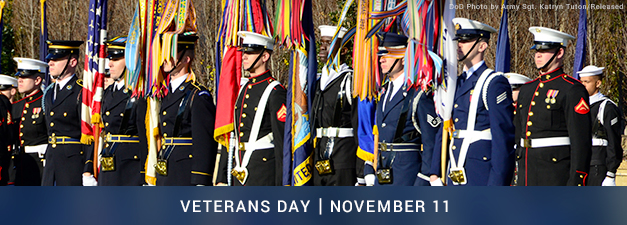
5 Oct 2020Military.com | By Paul R. Lawrence
Paul R. Lawrence, Ph.D., is under secretary for benefits at the U.S. Department of Veterans Affairs
While our country is dealing with the effects of the COVID-19 pandemic, the Veterans Benefits Administration within the Department of Veterans Affairs has modified its outreach by meeting veterans where they are in a safe environment. At the VBA, we provide benefits and services to veterans, service members, survivors and dependents in a responsive, timely and compassionate manner in recognition of their service to the nation.
As VBA’s leader, I typically travel around the country throughout the year engaging veterans face-to-face to bring awareness about different benefits and services available to them and their dependents. This is also where I learn a great deal about veterans’ needs and gather insights.
Unfortunately, the pandemic slowed that travel. So we’ve found another way to stay connected: conducting multiple telephone town hall meetings each week. Since March, I’ve conducted 69 tele-town halls in 50 states and connected with more than 2.5 million veterans.
These virtual meetings have afforded me the opportunity to interact with veterans and discuss VBA’s continued service during the pandemic. We have a responsibility to ensure our veterans receive what they need, as well as to help them understand and access their benefits earned.
In doing these tele-town halls, I’ve learned veterans from every state have different concerns about the pandemic, specific to their location. A veteran in Oklahoma may be more concerned about education benefits during the pandemic, while another in Florida is looking for a representative to assist with the home loan application process. I learned from a veteran’s spouse that her husband had died and she was concerned about losing her home. We followed up to help her directly. Thanks to responsive action by VBA employees and her husband’s honorable service, this survivor is receiving benefits she deserves and her financial situation has improved.
One of the most common questions I’ve received nationwide pertains to benefits earned. I’ve found that the VBA needs to turn its focus to supplying veterans with the basic information surrounding benefits, as well as promoting the steps of the various processes. This point has allowed me to recognize the importance in securing a strong relationship with state VA offices and Veteran Service Organizations. By establishing these connections, the VBA can streamline the process for veterans applying for and receiving the maximum benefit possible, with assistance from someone who understands the steps taken from beginning to end.
Our relationship with the state VAs is crucial to the success of serving veterans in a manner that honors their service. To connect with a state VA representative, I encourage veterans to visit our website for contact information.
Another commonly asked question regards the post-service outlook for troops leaving the military. As a response, we have identified programs specifically designed to help these transitioning service members and other veterans thrive in this rapidly changing environment.
In addition to questions, I have also been able to address concerns and challenges facing our veterans from education benefits during distance learning to mental health issues facing the veteran community.
For example, suicide is a national public health crisis that affects all communities, especially the veteran population. The VBA offers the support needed to mitigate the effects of suicide. Working to prevent veteran suicide is a top priority at the VBA — including being a resource to those who do not, and may never, seek care within our system. Through outreach, we are working to help veterans at home and abroad.
One of the ways we engage veterans is through Solid Start, a program developed as part of the VA’s larger suicide prevention strategy, which includes the PREVENTS Initiative, President Donald Trump’s road map to reducing veteran suicide. The first year after separation can be the most difficult for veterans to navigate and therefore a critical time for the VA to connect with vets to help them get benefits, support and services — ultimately, lowering the risk of suicide for our nation’s service members.
Pairing those efforts with the tele-town halls has become a valuable addition to our outreach to veterans. If you or someone you know is a veteran in crisis, we want to talk with you right away. You can reach us any time by calling 800-273-8255 or by texting 838255.
As a promise, I will continue to meet veterans where they are, getting them connected to what they need, whether in person or virtually. In the coming weeks, I will be hosting more town hall meetings, and I encourage veterans to participate when possible. I’d like to hear from you.
For more information, you can visit our site or call 800-827-1000.
